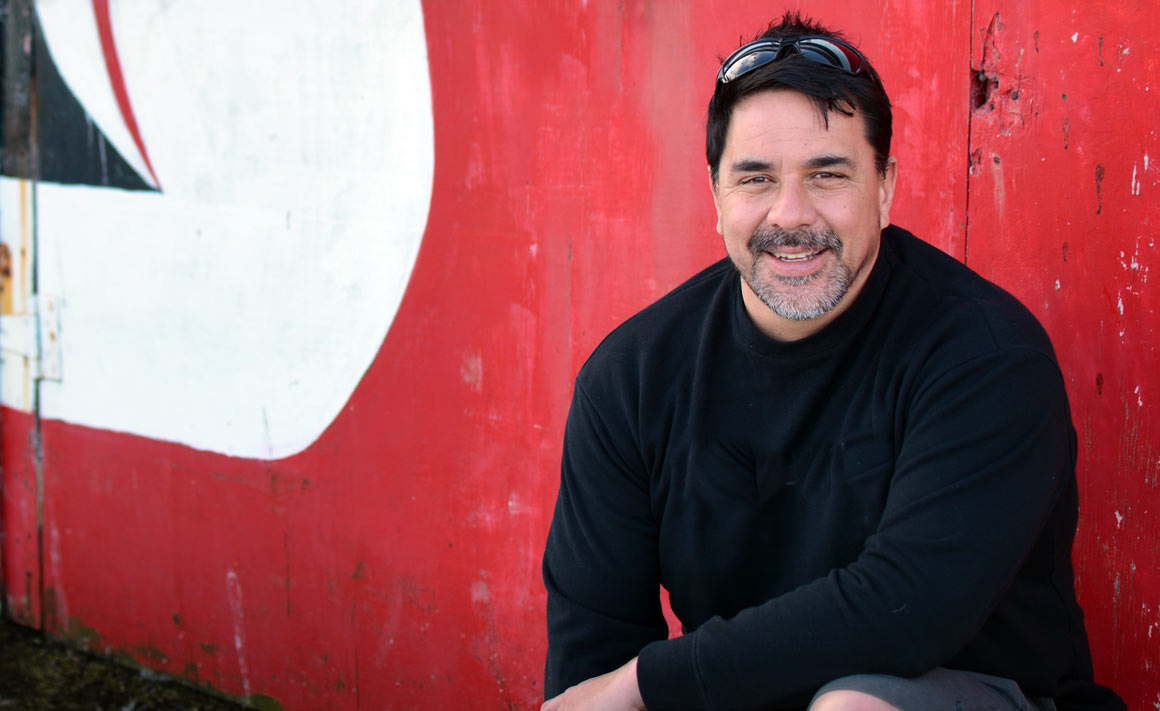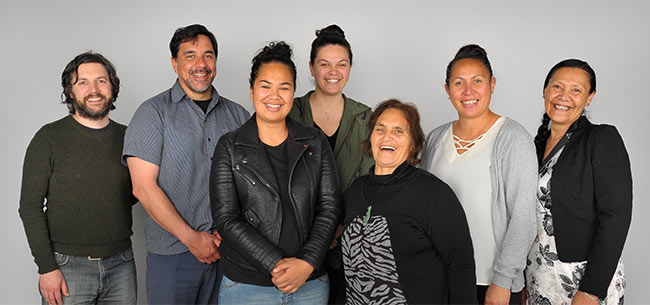
Te Ara Auahi Kore (TAKe) is a new research programme seeking to understand – and reduce – disproportionately high rates of smoking among Māori.
While there is an overall reduction in smoking rates in New Zealand, this downward trend is not being reflected among Māori, for whom smoking rates remain relatively static. So, if we are to achieve the Smokefree Aotearoa 2025 goal, something will need to change.
A team of Otago researchers, in collaboration with Whakauae Research Services (Whanganui), has partnered with health organisations working with Māori communities to help turn this around.
The team is undertaking a new research project, Te Ara Auahi Kore (TAKe), to understand why Māori smoking rates are bucking the national trend and to provide high quality evidence to address the smoking rate disparities. The researchers aim to find what might work better, but first need to understand why existing tobacco control interventions/policies, such as increasing taxes on tobacco, are not having the same impact on Māori smoking rates compared to non-Māori.
Lead researcher Andrew Waa (Ngāti Hine) from Te Rōpū Rangahau Hauora a Eru Pōmare (Eru Pōmare Māori Health Research Centre, University of Otago, Wellington) explains that there is currently very little Māori-centred evidence.
“Research into tobacco control strategies, such as tax increases, plain packaging and services like Quitline, has often focused on the whole population.”
The partner organisations – Kokiri Marae Keriana Olsen Trust, Ora Toa PHO (primary health organisation), Ngāti Porou Hauora, Ngā Mataapuna Oranga, National Hauora Coalition, Te Tai Tokerau PHO and Manaia PHO – are key to the success of the project.
“Without these relationships we would not have community buy-in and risk being out of touch with the type of information that can help make a difference,” Waa says. The TAKe team includes community-based researchers working with each partner.
“By partnering academic research working with communities, we hope to discover why these strategies that have been generally effective in New Zealand might not be working so well for Māori,” says co-researcher Bridget Robson, (Ngāti Raukawa), Eru Pōmare Centre director and Associate Dean Māori at the University of Otago, Wellington.
"These studies are 'by Māori, for Māori', working with Māori health providers and their communities and whānau to find out what could work better.”
The research team includes experts in Māori health, kaupapa Māori methodologies and cohort studies. There is also a Rōpū Kaitiaki (advisory group) for the project that includes representatives from the research partners, Hāpai te Hauora, and people who have conducted similar research in Australia.
The first study, a policy and intervention survey, looks at what's happening with tobacco control activities. For example, plain packaging of cigarettes, changes in retail outlets and smokefree parks.
“We want to first see first what sort of Auahi Kore [smokefree] is happening at community level,” says Waa.
Secondly, TAKe is undertaking a significant cohort study of 700 Māori smokers recruited from communities in the North Island with the help of the partner organisations.
After a baseline interview, the researchers will then interview the same people about a year later to discover changes or influences that have helped them quit smoking.
“We've seen a lot of studies over the years about what affects Māori smoking rates, but this is the first longitudinal, mixed methods study to look at these and why they are not going down like general smoking rates in New Zealand,” says Robson.
The third part of the research is a qualitative study of the impacts on whānau of current tobacco control policies, including increased tobacco taxes, interventions and services.
"These studies are 'by Māori, for Māori', working with Māori health providers and their communities and whānau to find out what could work better.”
Bridget Robson
Focus group interviews in this study will give a whānau- and community-based view rather than individual perspectives.
Co-researcher Heather Gifford (Whakauae Research Services) says they hope this will be an opportunity to discuss what's working for whānau and what else needs to happen at a whānau, provider and national level to curb Māori smoking. “We are particularly keen to talk about any unintended consequences as a result of current government initiatives, such as increased poverty from tobacco tax increases and stigma possibly being felt by those continuing to smoke.”
“We've drawn from other studies and adapted ideas to fit the Aotearoa context,” says Waa. These studies include the International Tobacco Control Evaluation Project (ITC), a study evaluating policy impacts in relation to the Framework Convention on Tobacco Control, run from Waterloo University in Canada, and also ideas from an Australian indigenous study 'Talking about the Smokes' (TATS).”
The three studies in the TAKe project will provide a unique picture of national, regional and whānau influences on Māori smoking.
“TAKe is working from the inside outwards, from a Māori worldview to discover why smoking rates are not decreasing. The key to the complexity of Māori health could be in finding what drives many of these issues,” says Robson.
“The timing is ideal - these studies will provide important baseline data allowing evaluation of the many interventions and policies being put in place over the next year, including plain packs, health warnings, e-cigs and tax rises,” she says.

The TAKe fieldwork team, from left: James Stanley and Andrew Waa (University of Otago, Wellington), Erana Peita (Te Tai Tokerau PHO), Anania Kerehoma-Cook (Kokiri Marae Keriana Olsen Trust), Cindy Mokomoko (Ngā Mataapuna Oranga), Deborah Palmer and Linda Hovell (Ngāti Porou Hauora). Absent: Chanelle Clinton (National Hauora Coalition).
Funding
- Health Research Council
- The research team also acknowledges the support from: Hāpai te Hauora, TATS (Talking about the Smokes) and ASPIRE2025.